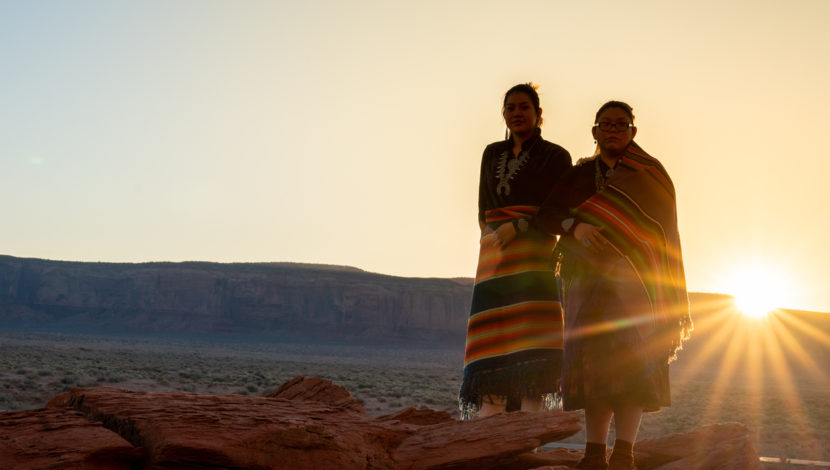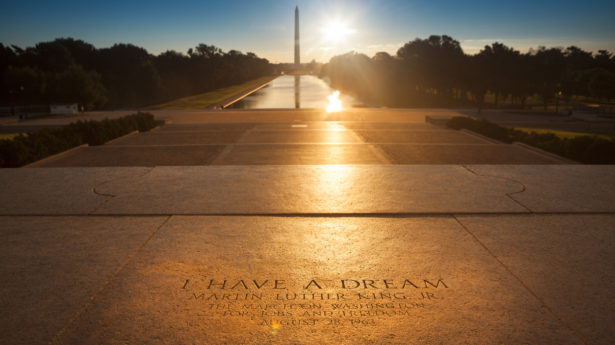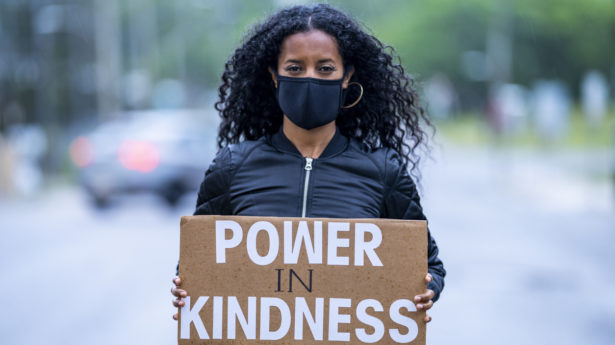The Unitarian Universalist Service Committee advances human rights through grassroots collaborations.
“This Land is Your Land” Calls Us Into Reflection on Colonialism, Indigenous Sovereignty

By on January 26, 2021
I come from thread-pulling people. Storytelling people, who pull on threads of truth, inviting us to hold what falls apart in our hands and ask, “What can now be created from here?”—Ana Maria De La Rosa
###
Last week I watched the inauguration of President Joe Biden holding complex emotions ranging from relief to hopeful hesitation. I paid extra close attention to the discourse that rose up around pop singer Jennifer Lopez’s performance of “This Land Is Your Land.” As the daughter of immigrants and someone of Puerto Rican heritage, I followed the claims of reclamation and representation by Latinx people for whom having a Latina sing those words on that stage felt like a declaration of existence and inclusion.
I paid even closer attention to the harms Indigenous communities were expressing in listening to that song, on that stage, in this moment—a clear and direct erasure of the Indigenous claim of existence and sovereignty.
I pulled on the thread of Woody Guthrie’s song “This Land is Your Land” and found that like many stories we hold, it’s that denied truths can cause the most pain. The original intent of the song was to subvert claims to land ownership—Guthrie who considered himself an anti-fascist communist in the 1930s, wrote it as a sarcastic reply to “America the Beautiful.” The original song includes lyrics that are never publicly sung, which aim to call out exactly what the song is known for now: That this land does not indeed belong to you or me.
I pulled and held the threads of the complicated history and present impact of this song, threads pointing out this settler colonialist government’s reliance on propaganda to the point of co-opting any critique that isn’t unequivocally clear in its condemnation. There can be no room for misinterpretation in white supremacy culture because what will always be misinterpreted are good intentions and what will always be left are the harmful impacts.
Guthrie’s land ownership critique and analysis was a product of its time and his person—limited and flawed especially in the ways it never brought itself to explicitly call for giving the land back to native people. When we fail to include land in our activism and advocacy for Indigenous sovereignty, what will be centered and prioritized are the interests of the people who have no incentive to ever do so.
Advocacy and accountability under this new administration is an opportunity to hold what’s left of the threads from the previous administration and ask ourselves what can be created from here?
As we look into the future of climate justice and environmental justice policy, we must continue to:
- Lift up the call for land reparations and support Indigenous land back movements;
- Honor Indigenous sovereignty and treaty rights by stopping the construction of mining sites, oil and gas pipelines, border walls and other extractive industries; and
- Defend the rights of Water Protectors by opposing laws which aim to silence the power of Indigenous Resistance at the state level.
***
About UUSC: Guided by the belief that all people have inherent worth and dignity, UUSC advances human rights globally by partnering with affected communities who are confronting injustice, mobilizing to challenge oppressive systems, and inspiring and sustaining spiritually grounded activism for justice. We invite you to join us in this journey toward realizing a better future!
Image Credit: iStock – grandriver

